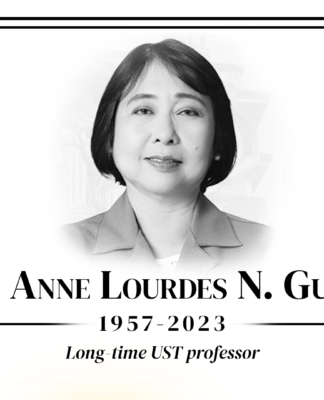CONGRATULATIONS, graduates.
With that out of the way, let’s turn to matters that will affect students who will be coming or returning in June for the new semester.
For students in the blink because of final requirements or examinations, tuition has yet again been hiked up by the administration due to rising inflation and projected expenses.
I believe in inflation. Not as a righteous cause for the raising of tuition, surely, but as a fact of daily life. As to its being the cause of yet a year’s rise in tuition, I have always agreed that the University also has to make a living, so to speak. It also has to continuously buy electricity to “feed” its little buildings (which keep growing bigger and taller) and the facilities and equipment to keep them “clothed”. Considering the University’s fertility and seeming lack of planning, infrastructure is bound to cover every inch of this place (and in the process, raise tuition five times over in the next decade). And then, there are the salaries and other compensation afforded to the school’s employees, both academic and non-academic.
What I have not agreed with is the administration’s continued dependence on the students to pay for these improvements. As a corporate body, I am sure the school has ways and means to look for funds elsewhere. The partnerships, sponsorships, and donations that the school has transacted in recent years have yet to make their fruits evident.
***
Then, there’s the argument that the volume of students that are enrolled means more maintenance measures, and that entails rising costs. Here I decry the academic forgiveness policy first implemented by the University in 2003-2004. The policy, if memory serves, has it that a student who does not qualify for any of his choices may be reconsidered if his grade is good enough for another course not his choice. Of course, the student necessarily will enroll in that other course, even if it is not his choice, the school’s benevolent aim being, at least, the student getting a college education.
I’ve said it before, I’ll say it again: it is good if the student excels or at least performs satisfactorily in the course where he is put; otherwise, both the school and the student suffer. The school, in terms of quality students, because, let’s accept the fact that for all the degrees being boasted by colleges in their faculty profile, teachers are not all effective in imparting knowledge to their students, much less convince a “stray” student that he was born for the course the school put him in.
The be-degreed teachers will have to be the subject of a future column. Suffice it to say for now that UST has produced excellent graduates but of course, they lose out to teachers with degrees even from god-forsaken schools. A college’s argument: the accrediting body won’t investigate backgrounds anyway. See, we don’t take care of our own, and when we do, it’s the wrong way: we kick them out.
Well, at least, an “academically forgiven” student will pay tuition, higher each year, and I’ll bet my next allowance he’s not actually using the comfort rooms in each day of his stay.















